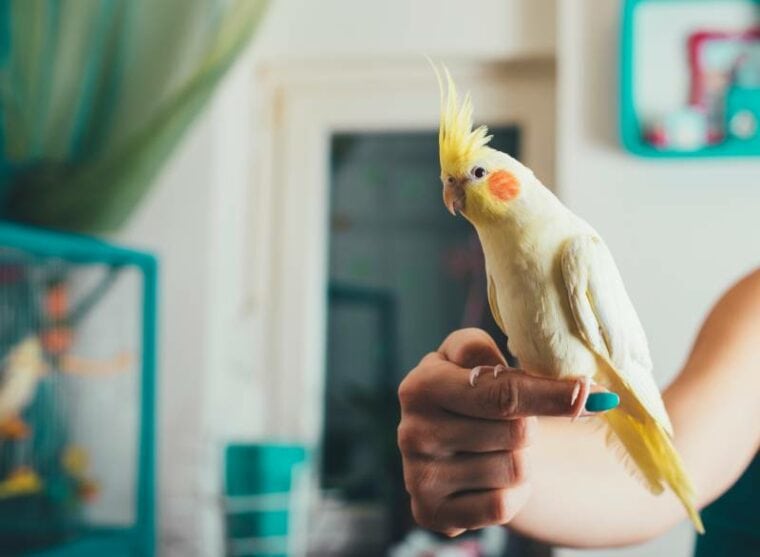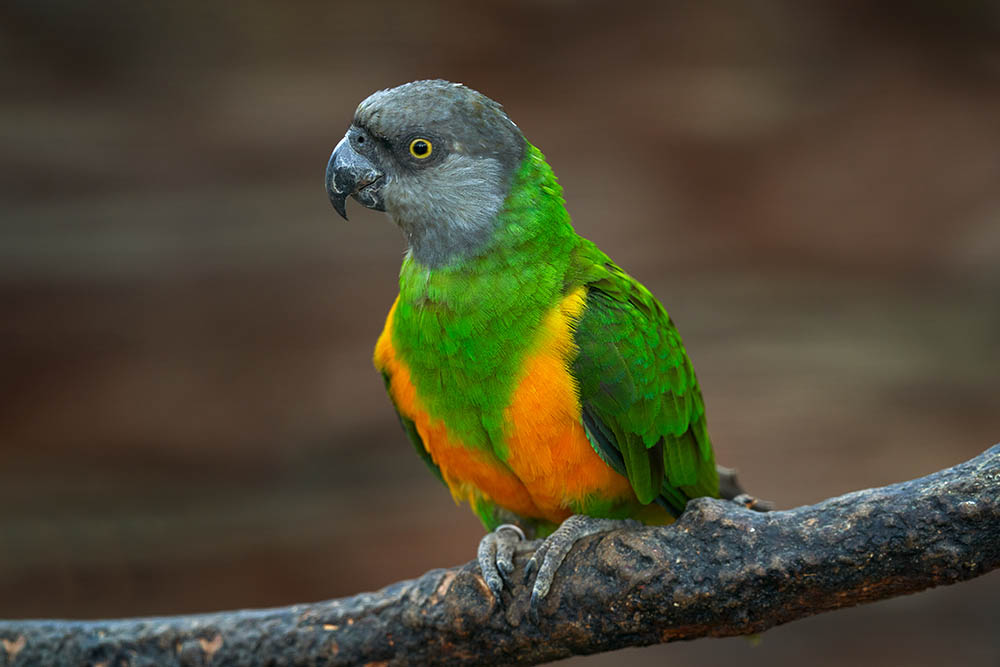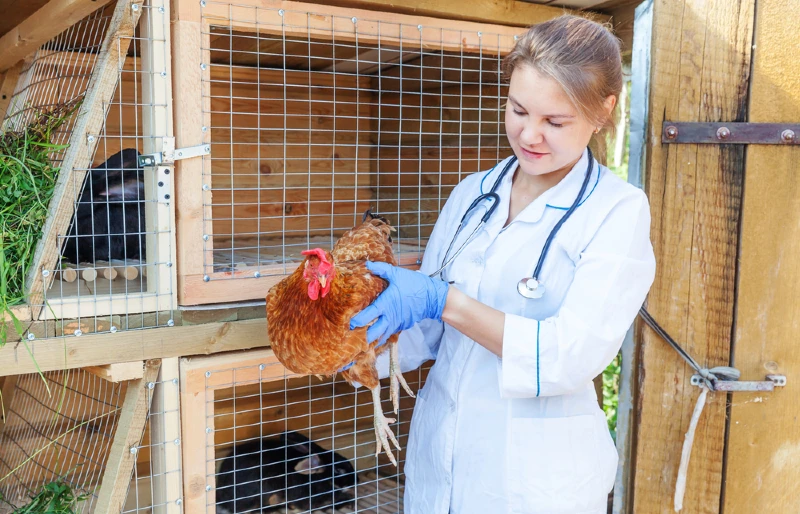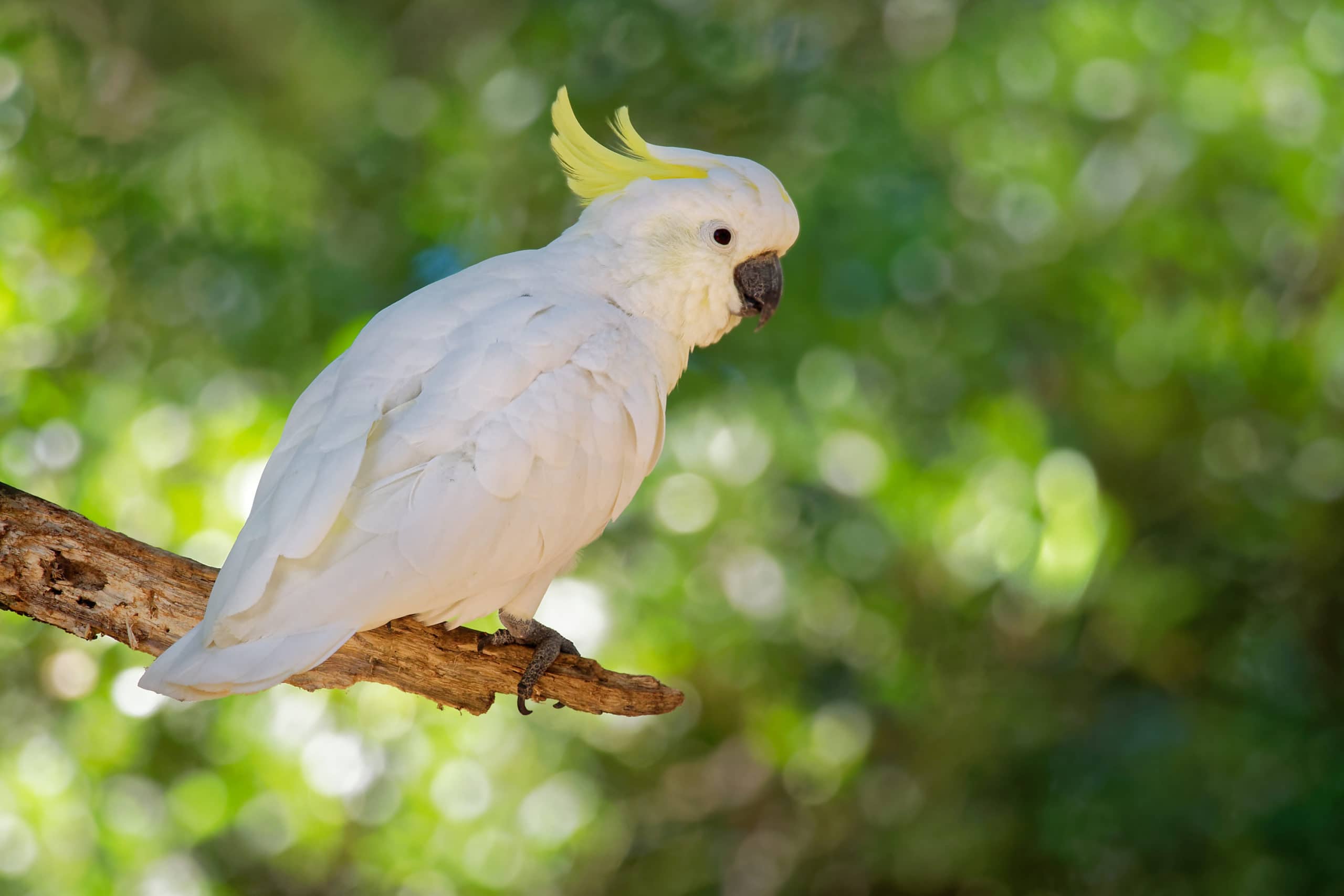
Can you get sick from your pet bird? Pet birds can carry diseases, but it is not common for humans to get sick from them. If you are concerned about your bird getting you sick, please talk to your own doctor. With that said, people usually only get sick from their pet bird when something else is going on, when their immune system is compromised, they are on medication, or the hygiene of the bird’s home is less than ideal.
Read to learn more!

What Is a Zoonotic Disease?
Diseases that can be passed from animals to humans are called zoonotic diseases. However, many bird diseases do not infect people. For example, the psittacine beak and feather disease virus does not infect people. So, it is not zoonotic.
Avian zoonotic diseases do not always have to cause illness in birds but can still make people sick, while others make both birds and humans ill. Regardless, it is always important to maintain good hygiene when caring for birds. Here are some tips you can remember:

The following list of potential zoonotic diseases in pet birds is long. And intimidating. However, remember it’s not common for people to get sick from their birds; it’s just something to be aware of. Be aware but do not panic. Zoonotic Diseases in Birds and Humans
Here, we will not discuss all the following potentially more common zoonotic diseases. While this list is long, it is not a complete list.

The 9 Common Diseases Pet Birds Carry
1. Salmonella / Escherichia coli (E. coli) / Campylobacter / Cryptosporidium
These are all bacteria that can be found in bird feces, especially chickens. When humans accidentally ingest them, they can cause severe diarrhea and food poisoning-like symptoms.
Birds carrying these bacteria do not have to show signs of illness, and some can even be a natural part of their microbiome. This is why the myth that a pet has less bacteria in their mouth than humans is not relevant. Even if it were true (doubtful), the bacteria that birds have in their digestive tract can cause illness in humans.
With that, it is possible for these bacteria to also cause diarrhea and illness in birds.

2. Chlamydophila
Chlamydia infections are common in parrots. It is not the same type of chlamydia that is a sexually transmitted disease in humans, but it is related, so it has a similar name.
Chlamydophila psittaci causes parrot fever. In birds, it can cause severe disease, but it can also be completely asymptomatic—no signs of disease. In fact, it can happen when Chlamydophila psittacine is carried in asymptomatic birds for a long time while they accidentally spread it to other birds and humans.
This is why it is good to test your bird for chlamydia. It is shed in bird feces and nasal secretions and then breathed in by humans, where it can cause flu-like symptoms. Pregnant women should be extra cautious because it can cause abortions.

3. Giardia
Giardia is a single-celled parasite that infects the digestive system, causing diarrhea and weight loss. If your pet bird (parrots, chickens, pigeons, canaries, etc.) has giardia, you can get it from them and have the same symptoms.
If you get a new bird, it is a good idea to get a fecal exam at the vet to make sure they do have giardia before you introduce them to their new home.
Indoors, once you have established that they do not have it, they are not likely to get it. However, outdoor birds easily get it from contaminated water, food, or feces. Keeping their homes nice and dry helps prevent it.
4. Aspergillosis
Aspergillosis is an infamous fungal infection in birds because they are particularly susceptible to it. Aspergillus fumigatus, the causative fungus, is found everywhere in the environment and causes respiratory disease in birds but rarely does in humans (and other mammals).
When it does infect birds, that also means there will be more of it in their home. This can be a potential problem for immunocompromised people or when the ventilation is poor. However, most of the time, the human immune system is strong enough not to be affected by it.

5. Candidiasis
Candidiasis an infection of the yeast Candida albicans. It is usually a commensal organism on birds and humans, not causing any problems. However, it can overgrow and become an infection if circumstances are just right, especially in unhygienic situations or immunocompromised individuals.
6. Tuberculosis
Caused by Mycobacterium avium tuberculosis is a very serious disease in both humans and birds. It is an important epidemiological disease, particularly in certain parts of the world. And not only can infected birds spread it to humans, but infected humans can spread it to birds. Birds spread it to humans through their feces, and they can get it themselves from other infected birds or contaminated soil as it survives for a long time.
Tuberculosis is difficult to treat, and because it is such an important disease and can live in the environment for such long-time, infected birds should not be kept with humans.
7. Cryptococcosis & Histoplasmosis
Both these diseases are zoonotic in pigeons. They are fungus found in pigeon feces. Coops need to be kept clean, and protective respiratory equipment may be recommended.
In humans, cryptococcus can cause infections in the brain, lungs, and kidneys with cryptococcus infections. And histoplasmosis can cause lower respiratory infections like pneumonia.

8. Avian Influenza
Avian influenza has been prominent in the news. It is a virus that spreads easily among birds outdoors. And while it is still rare for humans to get avian influenza, it has happened. Because of its potential to be a new viral zoonotic pathogen, it is of high priority to monitor.
As we have learned in the past few years, respiratory viruses that mutate to infect humans can be dangerous. And avian influenza has spread, particularly in the US, among birds and chickens.
It is deadly in birds and causes flu-like symptoms in humans, which (as we now know) can range from mild to severe with complications.

9. Bird Allergies and Hypersensitivities
It is common for birds to cause allergic or hypersensitivity reactions in humans. Allergic reactions can be life-threateningly serious, while hypersensitivity reactions are less severe but can still be problematic. The dander off bird’s skin, feathers, and poop can create a lot of dust which is usually what people react to as it drifts in the air.
While hypersensitivity reactions usually go away quickly once exposure to the birds stops, if a person is continuously exposed, they can cause long-term and permanent lung damage. People who work in coops with pigeons a lot have this happen.
Any signs of allergic reactions need to be discussed with a doctor and anaphylactic reactions need emergency medical treatment. 
Concluding Thoughts
Birds can be surprisingly entertaining and loving. And I think they are great and safe pets for just about everyone. However, if you are at all concerned with getting sick, discuss it with your doctor, especially if you have any underlying health problems. Perhaps this article can help you and your doctor assess the risks and benefits.
Featured Image Credit: Pawle, Shutterstock









